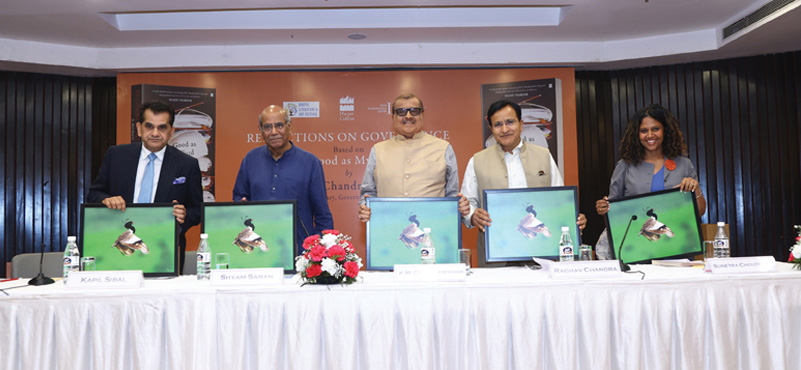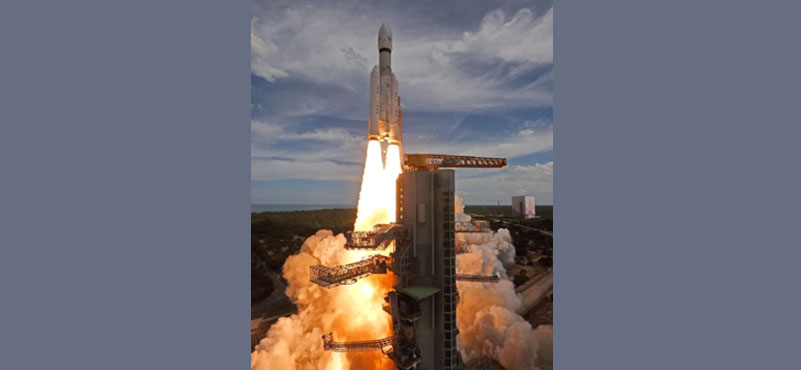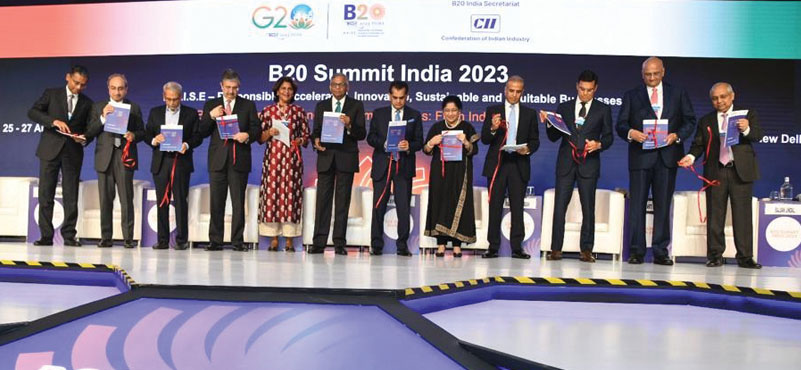 The occasion was the launch of former cabinet secretary K M Chandrasekhar’s book, “As Good as My Word”, which was accompanied with a panel discussion “Reflections on Governance”. It was co-ordinated by Shyam Saran, former Foreign Secretary; with participation from Amitabh Kant, G20 Sherpa; Kapil Sibal, Rajya Sabha MP; Sunetra Chaudhury, journalist; and Raghav Chandra, former chairman NHAI. An animated discussion on how governance can work better, on what makes a good officer, and how new entrants can watch their steps, take risks, and think out of the box.
The occasion was the launch of former cabinet secretary K M Chandrasekhar’s book, “As Good as My Word”, which was accompanied with a panel discussion “Reflections on Governance”. It was co-ordinated by Shyam Saran, former Foreign Secretary; with participation from Amitabh Kant, G20 Sherpa; Kapil Sibal, Rajya Sabha MP; Sunetra Chaudhury, journalist; and Raghav Chandra, former chairman NHAI. An animated discussion on how governance can work better, on what makes a good officer, and how new entrants can watch their steps, take risks, and think out of the box.
Following are the highlights from the panel discussion
Kapil Sibal
Rajya Sabha MP
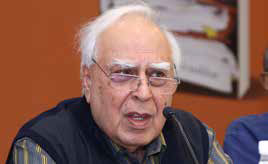 Sibal said he fondly recalled his association with Chandrashekar in college, though after that they went their different professions. Chandrashekar was the quintessential bureaucrat who served diligently for the government. He was also the quintessential diplomat in that he kept his mind, chose his words and also was never soft where we was required to be tough.
Sibal said he fondly recalled his association with Chandrashekar in college, though after that they went their different professions. Chandrashekar was the quintessential bureaucrat who served diligently for the government. He was also the quintessential diplomat in that he kept his mind, chose his words and also was never soft where we was required to be tough.
He bemoaned that such likes were not there in the government of today, this breed has all but gone. This underlying understanding was echoed again and again through the debate this evening, speaker after speaker. It was often said that the current crop may be technically qualified, they were another kind altogether.
Shyam Saran
Former Foreign Secretary
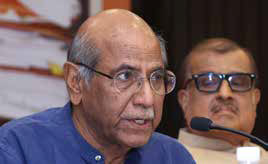 One thing to note is that everything about the book fits with his personality, it’s all understated. You never see Chandrasekhar making tall claims about anything that he has done. He has done wonderful things during his career. That is the first impression I got.
One thing to note is that everything about the book fits with his personality, it’s all understated. You never see Chandrasekhar making tall claims about anything that he has done. He has done wonderful things during his career. That is the first impression I got.
The second is his love for the train. He starts the book by saying, my desire was to be an engine driver. Meandering through the wonderful diversity of India that he talks about during his generation. But if you look at his career, he never meandered. When he came up with challenges, he met them head on, essentially a difficult person to start with, but became a difficult person to deal with when it came to negotiations for India.
And, in the book, you will find as to how he dealt with very complex issues with respect to the OECD countries and trade negotiations. In an unequal world, when you are dealing, especially with the developed world, unless you stand up to them, they will just rise over you. So, we have bureaucrats like Chandrashekar, and he is the quintessential bureaucrat who always ensured that the flag of India flies high.
When he became Cabinet secretary under the stewardship of Prime Minister Manmohan Singh, he had to go through several ups and downs and he particularly talks about the economic crisis of 2008 and how they dealt with it. And he has made some rather, very slightly, critical comments of the then finance Minister.
He refers to how he might have made some wrong decisions which led to very high inflation during those years, especially 2008 and 2009, which may have been actually the precursor to the unhappiness that the people of India ultimately reflected in voting the then government out of power.
25 years from now, I wonder what that journey will be because things have changed. The bureaucracy is no more the kind of bureaucracy we had, the kind of culture of bureaucracy; the nature of recruitment, even in the IAS has completely changed. The nature of politics has changed. So, the journey of a bureaucrat in during these contemporary times, is far more difficult and far more challenging in a way far more difficult and in a way far easier.
K M Chandrashekhar
Former Cabinet Secretary
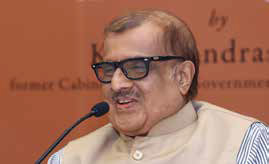 The civil service gives a lot of opportunities to officers to achieve results in diverse areas. At the end of the day, you will end up very reasonably poor, you can just manage your life, but the kind of opportunities you get, the wide range of functions that you hold, that is something which cannot be matched by any other job.
The civil service gives a lot of opportunities to officers to achieve results in diverse areas. At the end of the day, you will end up very reasonably poor, you can just manage your life, but the kind of opportunities you get, the wide range of functions that you hold, that is something which cannot be matched by any other job.
Always, I have acted as a team. So, whenever I achieved something, it was largely the work of the team and I have mentioned also the names of all those people who made up the then team.
I have also said when an officer decides to sit back and do nothing, nothing happens, he will retire. He will get his pension. He will live his life. Nothing will happen. But if you want to achieve something, you need to have the courage to take risks, and these risks can create trouble for you later. You have to take a plunge into certain things. If you want to achieve that, I have done some others have also done. And the trouble is that it could cut both ways. You know, when the CAG or the CVC or any other, ID or whatever, when they go through the details of an incident, they have all the facts with them. When we take a decision, as officers, we do not have those facts. We are going blind into a decision, half blind at least, and you still have to take the decision because the cost you have to pay for delays is much greater than the problems you may have to encounter. Ultimately, you have to place your job and your country above yourself, and you must have the courage to do that. That makes a good officer.
I have also mentioned that you see people still talking about the IAS as a steel frame, the civil services as a steel frame. There is no steel frame now. The steel frame was relevant in colonial times. At that time, you had to do only law and order. But we do have a steel frame, and for that I give all the credit to those wonderful makers of the Indian Constitution.
I have quoted from a book, where it has been talked about what the British thought when India became independent. They said, it is never going to be a country. They cannot live together because they are all divided with language, caste, religion in every way. And how did India hold together? How have we gone strong? How has India become what we are today? When our neighbouring countries, which were also formed on the same date have declined. It is the strength of the Constitution. And I think democracy is a very significant factor.
Why it is not possible for officers to achieve results in their admitted areas. You cannot as a system work unless it becomes result oriented. And this is what I tried when I was the Cabinet secretary. Bring forward the Result Framework document system. Now, the whole idea was that you define the results and you work towards the results. Every piece of administrative reform that we had in India today is reform only in process. It is not reform if it is not result oriented at all.
I totally worship the Constitution. I totally worship democracy. Democracy has its problems. But without democracy, we would talk about it. And, that is one thing which I think we need to really focus on.
Amitabh Kant
G20 Sherpa
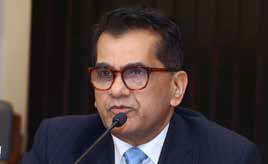 I was a young sub collector in the Malabar region of Kerala. When Mr Chandrashekhar picked me to be the general manager of a new organisation of which the objective was to transform the lives of traditional fishermen in Kerala. I was very disappointed when the government order was issued. But, looking back, I think they were the best 3.5 years of my career that I spent. That was a period when we took technology to traditional fishermen. We provided them motorboats so that they could go much further into the sea. We gave them new fishing nets which were then in Kerala, known as disco nets, and we gave them new fibreglass craft. The productivity and production in terms of higher catch increased. But fishermen were prone to drinking and therefore we had to open their bank account and opening a bank account was never easy. We also introduced beach level auctioning so that there could be a play of demand and supply. That was a great learning period.
I was a young sub collector in the Malabar region of Kerala. When Mr Chandrashekhar picked me to be the general manager of a new organisation of which the objective was to transform the lives of traditional fishermen in Kerala. I was very disappointed when the government order was issued. But, looking back, I think they were the best 3.5 years of my career that I spent. That was a period when we took technology to traditional fishermen. We provided them motorboats so that they could go much further into the sea. We gave them new fishing nets which were then in Kerala, known as disco nets, and we gave them new fibreglass craft. The productivity and production in terms of higher catch increased. But fishermen were prone to drinking and therefore we had to open their bank account and opening a bank account was never easy. We also introduced beach level auctioning so that there could be a play of demand and supply. That was a great learning period.
What I learned working with Mr Chandrashekhar was really about how to make a difference to the lives of citizens because, for almost 3.5 years, I worked in the fishing villages of Kerala with fishermen, day in, day out. It was a phenomenal period in terms of both making a difference to fishermen, making a difference to Kerala state. And I think a huge difference in my own evolution as an officer. And I think what I really learned from Mr Chandrashekhar was that never think small, always think big and I think that is one thing which has remained with me. Think 15 or 20 years ahead of your time. That is important.
 One big thing which I learned was take risks and I have taken hell of a lot of risks in my career, but I have had the fortune of working with some good bosses like him who supported me. So, I really benefited from his working very closely with him in making a difference to the lives of people.
One big thing which I learned was take risks and I have taken hell of a lot of risks in my career, but I have had the fortune of working with some good bosses like him who supported me. So, I really benefited from his working very closely with him in making a difference to the lives of people.
Later, when posted as managing director of the State Industrial Development Corporation, Mr. Chandrashekhar was my chairman. It was impossible to finance industries in Kerala because every industry had failed because of labour unions. So I started financing tourism units and many people do not know that Kerala Tourism owes a huge debt to Mr Chandrashekhar because he supported us in this endeavour. Later, when he became finance secretary, Kerala was going through a very precarious situation, and budgets across many sectors were cut. But the budget for tourism was never cut. And that’s how Kerala tourism was able to create new products.
Raghav Chandra
Former Chairman, NHAI
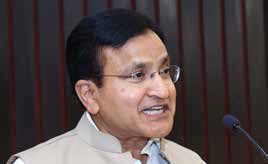 Charles Moore, who is the official biographer of Margaret Thatcher, wrote, I have been struck by how much modern prime ministers owe to the Cabinet Secretary of the day. Yet the public knows very little about these people, what they do and how much good governments depend upon their wisdom and cool judgement.
Charles Moore, who is the official biographer of Margaret Thatcher, wrote, I have been struck by how much modern prime ministers owe to the Cabinet Secretary of the day. Yet the public knows very little about these people, what they do and how much good governments depend upon their wisdom and cool judgement.
His writing is certainly very representative of his demeanour, as I have observed it is very subdued, very diplomatic, non-polemical and objective in its rendition of politically sensitive events and political personalities.
He has brought out some very interesting propositions and maxims in his book. So, each chapter is couched very diplomatically. But if you look very carefully, it is a very interesting sort of twist he has given to that entire discussion.
So, for instance, on trade negotiations vis a vis the Americans, he said, they respect strength and they will work carefully with those who can benefit them commercially or politically.
When we talk of proliferation of NPAs and banks and blame everybody, let us not minimise the role played by the regulators, the CAG, the investigative agencies and the judiciary, and the singular lack of understanding shown by them on politics. And this is the only area where he has really come out very clearly.
For a political person, it is fashionable to make disparaging remarks about Nehru. We forget that he strolled across the world like a colossus as the undisputed leader of non-aligned countries.
On the Commonwealth Games, we as a people we improvise as we go along.
He said I made mistakes, but I think it is also very clear that you actually grow as a result of those mistakes. You learn from those mistakes. To think that as a good bureaucrat you are not expected to make a mistake any time. That is incorrect. And I think that is a great tribute to him.
The other aspect that he has brought out is the role of personal networks in government. Personal networks are important, but personal networks must not become a substitute for systems.
Kind of an incentive disincentive system in the bureaucracy which does not actually encourage you, to do, to do, more, much more efficient management. Why? Hardly ever is the bureaucrat punished for something that he has not done, even if it causes thousands of crores of loss to the exchequer. And yet, if you have an omission which cost `10 to the government of India, you will be pursued till the end of your life. This kind of an incentive disincentive system must change.
As a civil servant who clearly sees his commitment to upholding the Constitution of India as his prime responsibility not to this government or to that government, but to the Constitution of and secondly, having at the end of the day, that sense of public service which is so important, particularly at the higher bureaucracy, and that also he displays in very good measure.
Sunetra Chaudhury
Journalist
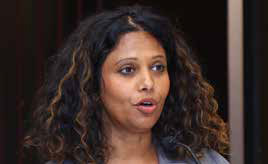 Journalist Sunetra Chaudhury gave that other dimension to the civil service of these times. So often, she said, it was difficult to get appointments from the then cabinet secretary. And when she did, she could spend a fair degree of time with him, but yet not get a story. The same she said was true of their other panelist Amitabh Kant. She said going through the book, she was able to piece together many of the incidents of that time, which she had not then found answers to. Hers was an important intervention, giving a view from the outside of the service.
Journalist Sunetra Chaudhury gave that other dimension to the civil service of these times. So often, she said, it was difficult to get appointments from the then cabinet secretary. And when she did, she could spend a fair degree of time with him, but yet not get a story. The same she said was true of their other panelist Amitabh Kant. She said going through the book, she was able to piece together many of the incidents of that time, which she had not then found answers to. Hers was an important intervention, giving a view from the outside of the service.
ABOUT THE AUTHOR
 K M Chandrashekhar is former Cabinet Secretary
K M Chandrashekhar is former Cabinet Secretary

